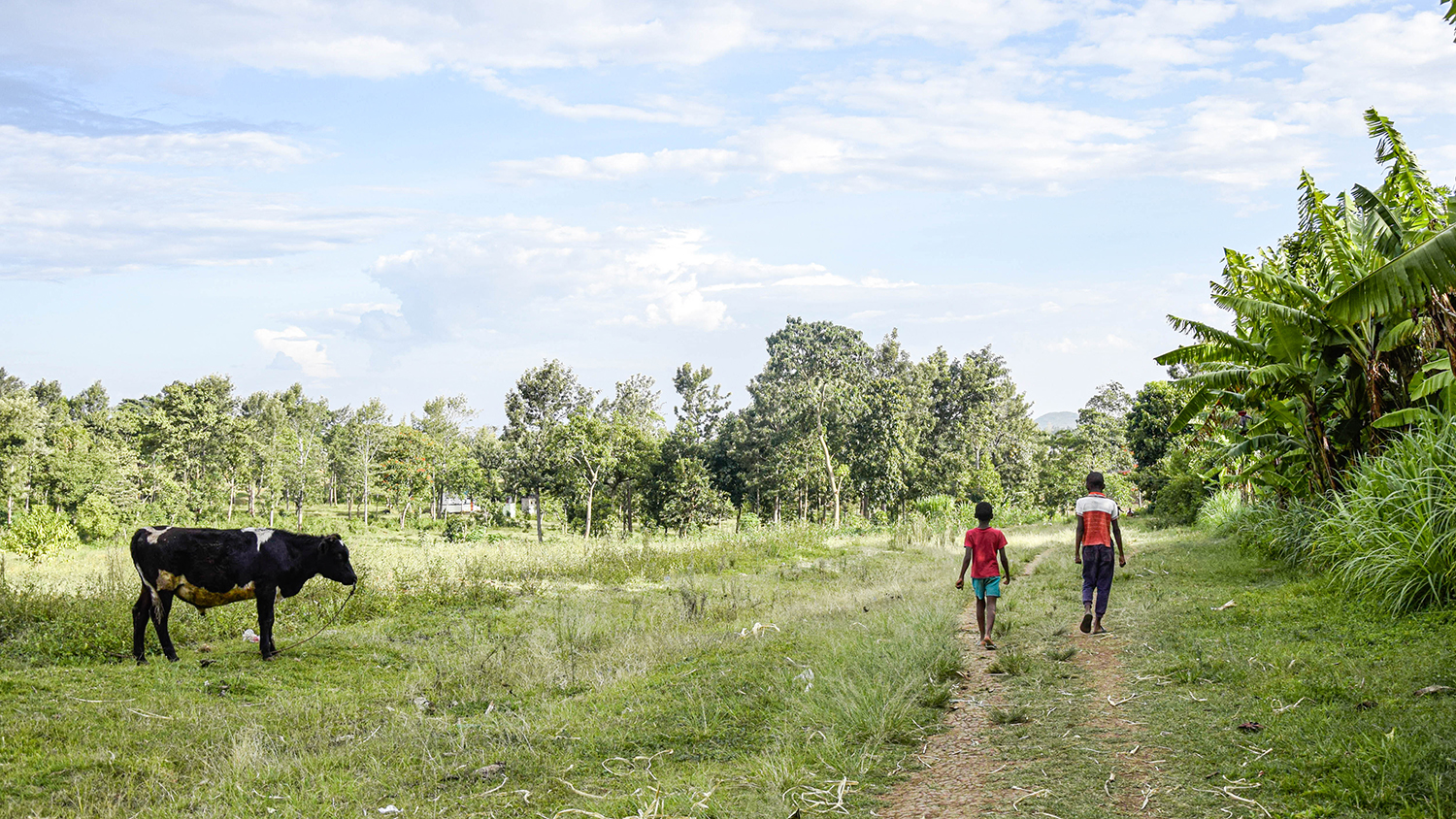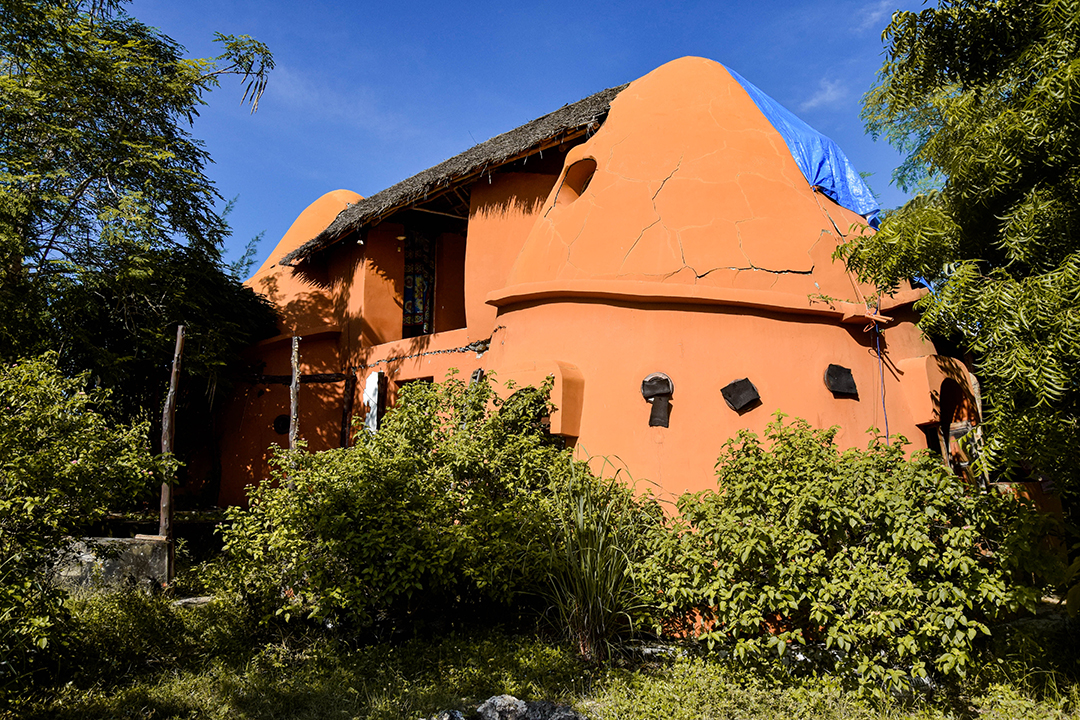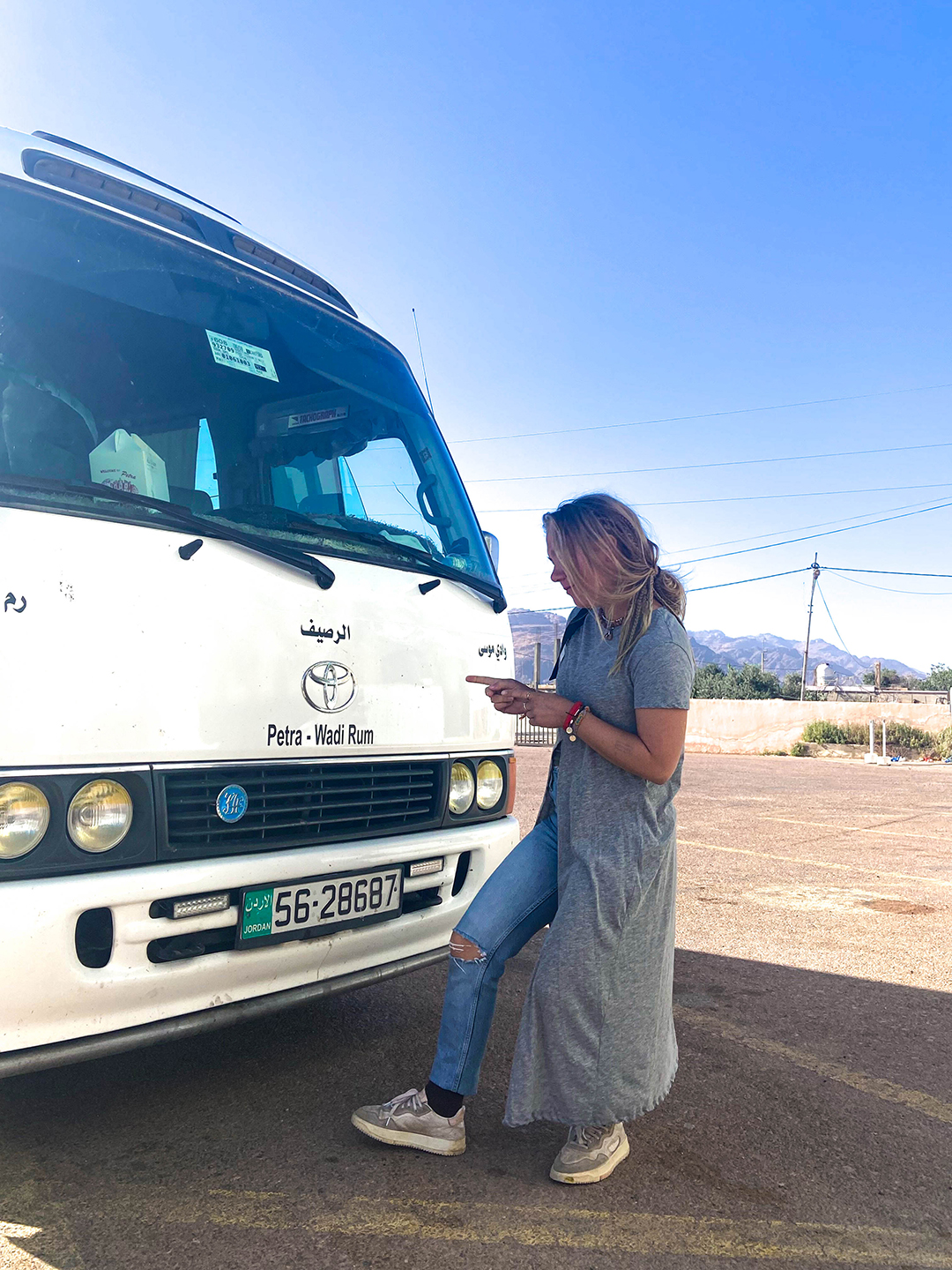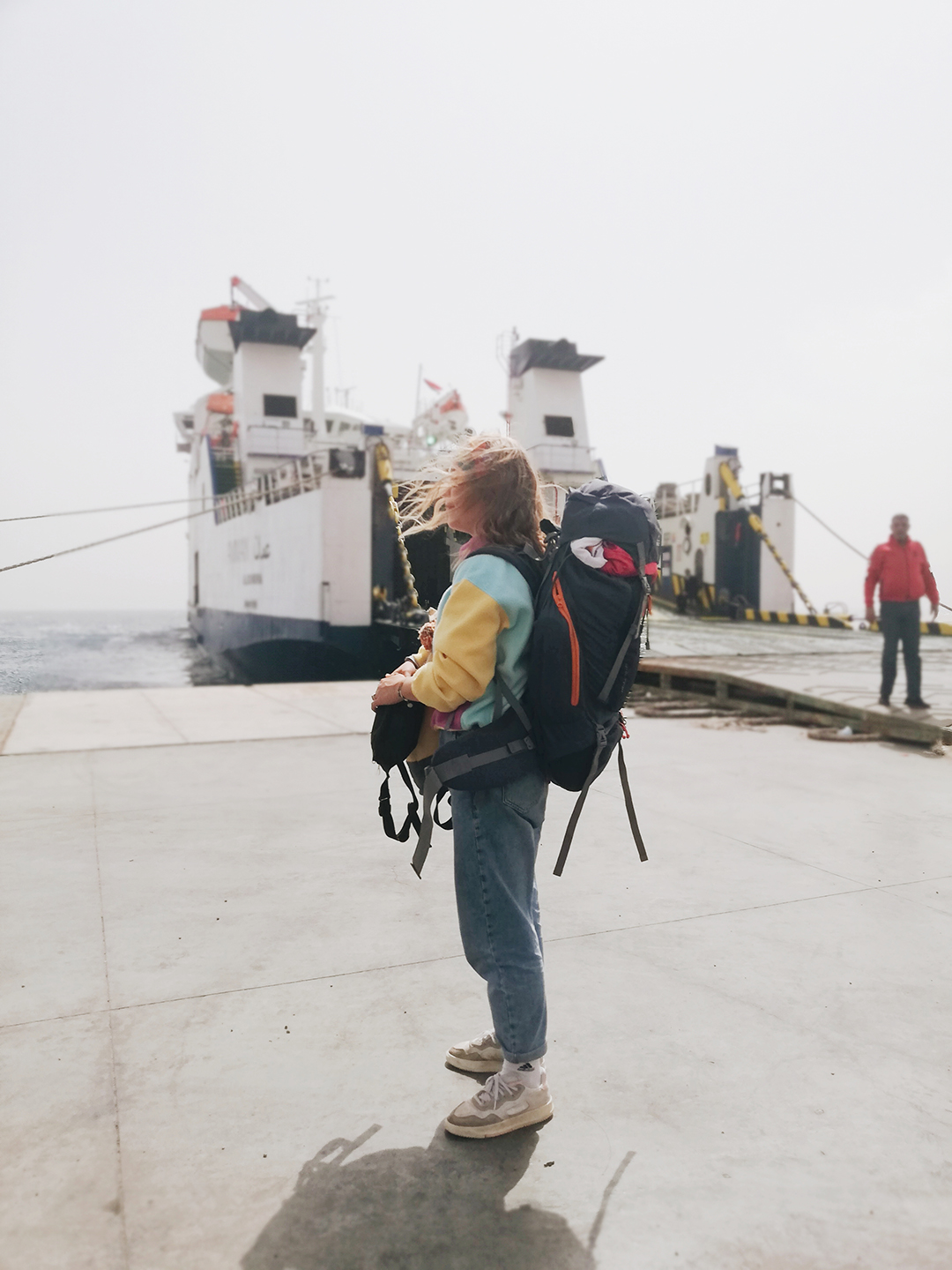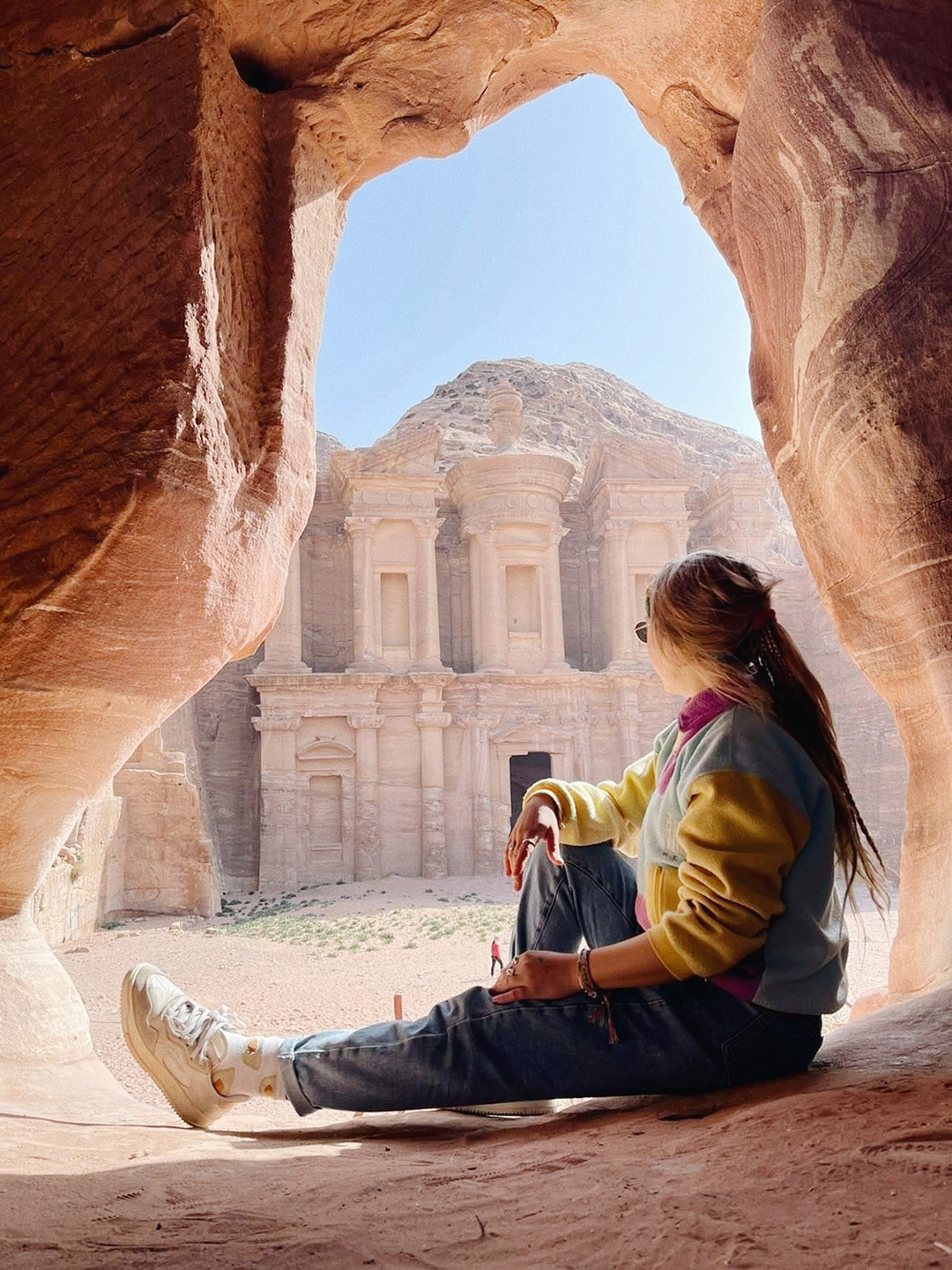Travel Cheap but Sustainable
The constant thinking that you need money in order to travel simply isn’t true anymore. Volunteering, in my opinion, is especially useful for young travellers and students when their finances are usually very limited. Voluntary work was exactly the reason I was able to afford a long trip. In exchange for a few hours of help a day I got food and accommodation, which was soon reflected on my bank account after travelling for a month. Of course, the amount of money depends on the type of travel. I was never drawn to luxury tourist resorts where you’re isolated from the local life as if you were in some kind of a bubble. When I was preparing to leave for Zanzibar about a year ago, I wanted to avoid tourist offers by all means. Accommodation at a resort simply wasn’t an option for me. Luckily, I got an opportunity in the village of Kizimkazi in the southern part of the island where I’d be taking care of the tropical garden and the house when the owners were gone.
Ida Glušič
I’ve stayed at quite a few eco-houses when travelling. Egypt was the most recent one where my host built a small clay house with colourful windows. Living there was pure poetry.
Eco-house in Zanzibar
I’ve stayed at quite a few eco-houses when travelling. Egypt was the most recent one where my host built a small clay house with colourful windows. Living there was pure poetry. But the most memorable was the house in Zanzibar. The project I applied for was linked to permaculture and care for the environment was a priority. The house in the shape of a beehive was built using natural materials and no chemicals were used in the garden. We recycled the waste and took it to a waste recycling centre, which was unusual practice in Zanzibar. Waste there is usually burned in the back of the house. The estate had a fountain from which I pumped water using a generator, so I could take a shower. All of the waste water from washing the dishes flowed into the garden, so using any kind of chemicals was prohibited. And I had a very limited amount of water, since it only rained once, despite it being rainy season. I got electricity through a small solar panel, which was strong enough to charge my phone. When it got dark, I saved that energy by lighting up candles. It feels like that was when I lived the most eco-friendly and was the happiest. After a few days of adjusting to limited resources, I started to enjoy myself like never before.
Priorities
When travelling, priorities are essential. For some people, it’s important to stay at a hotel that has a swimming pool and to visit a different restaurant each day. I’ve always preferred hostels and, for the last year, I’ve also been using various portals that enable couch surfing. I like to leave my comfort zone and the less things I have, the better I feel. Internet, warm water and the proximity of an urban centre suddenly stop being my priorities.
If I make a short stop in a city, I often use the Couchsurfing app, as it helps me get a better insight into the life of the locals. Even though the app is free and it can help save you money you’d spend for accommodation, you still have to be open enough and embrace other cultures. Otherwise, I’d advise against using the app. People open up the doors into their intimate life. Any kind of prejudice against other cultures or habits is unacceptable. But if you’re without prejudice and are open for new knowledge, then it’s a great way to learn new things. Things we’re used to in our culture aren’t always necessarily the right things.
The Green Meadows and You on the bus to Jordan
In addition to accommodation, there are also modes of transport. Being able to use the local bus is the greatest thing in the world for me. Usually, I’m the only tourist on these buses, which leave when they’re full. Despite comfort being the last thing you can expect on local buses, the prices range accordingly and I always have fun on them. Afropop played on the buses in Tanzania and I was always up-to-date with the current musicians. And I was a DJ myself in Jordan. I played The Green Meadows and You in front of the audience and then we went back to the traditional Jordanian music.
I advocate the use of public transport or joint transportation. In Egypt, I was surprised by the underground and the cars that were reserved exclusively for women. And I discovered many interesting things when I was hitchhiking. A French family offered me a ride in Jordan once. They were spending their holidays there. When I mentioned I was going to work at DJ music festival in the desert the children desperately wanted to come along. :)
In Jordan, you can find a website where people who have free seats in their car offer other people a ride. Except that the driver there picks up their “clients” at their home. I was my driver’s first client back then, and then we drove off to run various errands before picking up other passengers. We went to pick up new car tyres, we stopped at the fishmonger’s to pick up some iftar (a meal with which Muslims end their daily Ramadan fast)... A good thing I wasn’t in a hurry.
I would have never experienced anything like it in Slovenia, and I’ve heard all kinds of love stories and adventures while picking tangerines in the Neretva valley.
Crossing the border with Jordan
When it comes to long distances, there often isn’t any other option but to travel by plane. And yet I chose a ferry instead of the plane or a several-hour bus drive when going from Egypt to Jordan. It was quite an event! I was kind of scared of crossing the Egyptian-Jordanian border, since you had to fill out a considerable amount of various paperwork in order to enter Jordan back then. “Do I really meet all the requitements? Will I be refused entry? Will they send me home?!”
With those negative thoughts I arrived in the port of Nuweiba. People there had been loading large amounts of luggage and various goods since morning. When I saw the longest queue for boarding where they checked the tickets, I first wanted to make sure I was at the right gate. So I wouldn’t be wasting my time waiting in the wrong. I showed my ticket to a police officer, and he welcomed me with a broad smile and let me through the whole queue without any doubts. And these privileges only kept coming. In less than two minutes I was done with all the security and luggage checks, and then the police officer was waiting for me in his office. After offering me morning coffee, he insisted I eat something and then have a smoke with him. It was so awkward, since I’d never experienced such a reception, and at a border crossing at that! Luckily, two German tourists joined me, so I saw they wanted us to experience Egypt in the best light possible.
Few tourists cross the border by ferry, so it’s quite an event for many. We waited for about an hour at the office and then again, accompanied by the police officer, pushed through a whole queue of Jordanians and Egyptians who were waiting to get their passports checked. After some panicking due to my visa reaching a limit, I was again saved from all worries in less than a minute. And that wasn’t all. The bus took us to the ferry where I had to board and leave my luggage at some VIP spot. I was feeling more and more awkward, but I didn’t have a choice in the matter. A police sergeant waited for us in Jordan and accompanied us to the check-in counter. In a couple of minutes, I heard “Welcome to Jordan, Ida!” I didn’t even need a visa to cross the border, since I arrived through Aqaba. And I had bought the Jordan Pass (which includes tourist entrance fees and a visa) just for the visa, and they didn’t even look at it?! At first, I was a bit persistent, placing the document in front of everyone’s faces, so that they’d at least throw a glance at it, thinking I hadn’t bought it for nothing!
Volunteering at a hostel
Hostels are cheap, yet still comfortable. And you get to know all kinds of travellers. I, for example, had always wanted to work at a hostel reception. And then an opportunity arose in Jordan, in Wadi Musa, Petra, the location of one of the seven wonders of the world. It was a great pleasure to meet travellers from all parts of the world. I spent three weeks there, completely unexpectedly, and gained lots of new ideas for my next trips. If you take your time when travelling, you can have deeper conversations with travellers and locals, since they trust you more and you can even get involved in interesting discussions. Guests told me how to cross the Israeli-Palestinian border most elegantly when going to Palestine. I met an Argentine guy who cycled from Spain to Jordan. And there was a German woman of my age who was an experienced hitchhiker and impressed me so much that I hitchhiked myself a few times in Jordan and Palestine, saving some money. I befriended a Spanish woman who founded an animal shelter for the local animals in Petra. And there was an Italian woman who turned my hair into dreadlocks. Did you know it’s really easy to hitchhike in Turkey? Or that a woman can travel all by herself in Iraq and Pakistan? And did you know it isn’t as dangerous as the media would have you believe? Conversations in hostels opened up my eyes and now I’ve got a serious case of the travel bug. I think I’m not done with Middle East yet. :)
The team of "Travel Different for Future" project thanks Ida for writing this article for our blog to share her experiences and ideas to travel differently and more sustainable.

